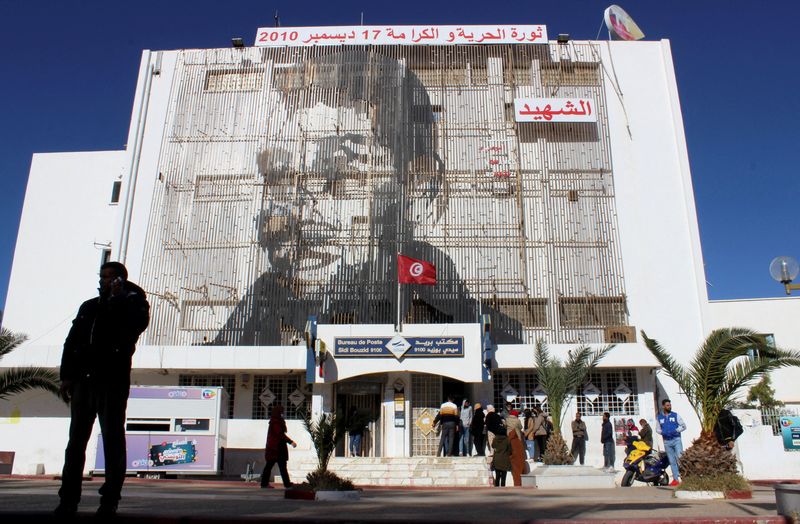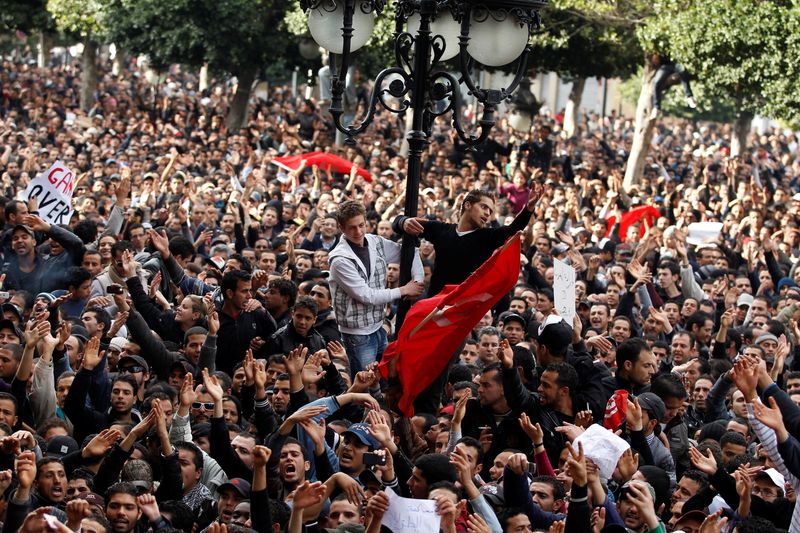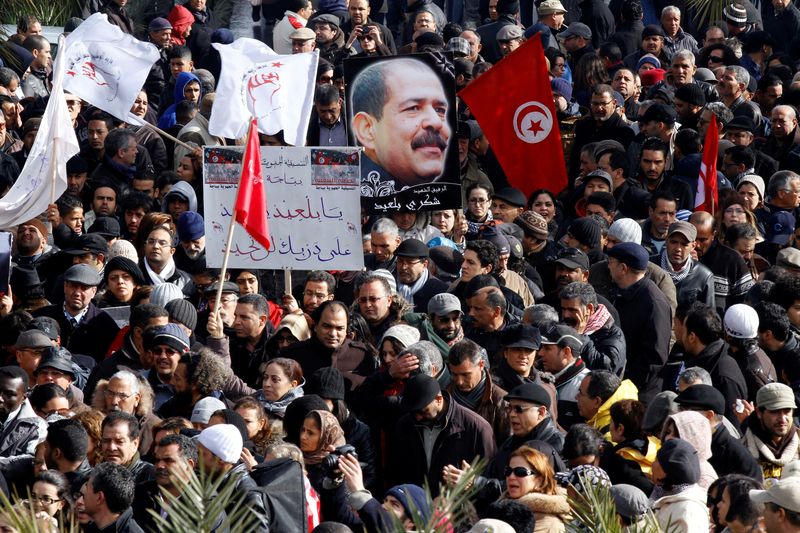TUNIS (Reuters) – Tunisia holds an election for a new parliament on Saturday. Opposition parties say the legislative chamber – introduced under reforms that concentrated power in the hands of President Kais Saied – is illegal and are boycotting the vote.
Here is a timeline of Tunisia’s tumultuous political path over the past decade.
* December 2010 – Vegetable seller Mohamed Bouazizi sets himself on fire after police confiscate his cart. His death and funeral spark protests over unemployment, corruption and repression.
* January 2011 – Tunisia’s autocratic leader Zine al-Abidine Ben Ali flees to Saudi Arabia, as the country’s revolution triggers uprisings across the Arab world.
* October 2011 – Moderate Islamist party Ennahda, banned under Ben Ali, wins most seats in a parliamentary election and forms a coalition with secular parties to plan a new constitution.
* March 2012 – Growing polarisation emerges between Islamists and secularists, particularly over women’s rights, as Ennahda pledges to keep Islamic law out of the new constitution.
* February 2013 – Secular opposition leader Chokri Belaid is assassinated, prompting street protests and the resignation of the prime minister. Jihadists mount attacks on police.
* December 2013 – Ennahda cedes power after mass protests and a national dialogue, to be replaced by a technocratic government.
* January 2014 – Parliament approves a new constitution guaranteeing personal freedoms and rights for minorities and splitting power between president and prime minister.
* March 2015 – Islamic State attacks on the Bardo Museum in Tunis kill 22 people. In June a gunman kills 38 at a beach resort in Sousse. The attacks devastate the tourism sector and are followed by a suicide bombing in November that kills 12 soldiers.
* March 2016 – The army turns the tide against the jihadist threat by defeating dozens of Islamic State fighters who rampage into a southern town from across the Libyan border.
* December 2017 – The economy approaches crisis point as the trade deficit soars and the currency slides.
* October 2019 – Voters show dissatisfaction with the major parties, electing a deeply fractured parliament and political outsider Kais Saied as president.
* August 2020 – Saied names Hichem Mechichi as prime minister, but quickly falls out with him as the fragile administration lurches through successive crises while struggling to handle the pandemic.
* July 2021 – Saied dismisses the government, freezes parliament and says he will rule alongside the new prime minister in an intervention that his foes call a coup. Soon afterwards he brushes aside the constitution to rule by decree.
* February 2022 – After legal challenges to some of his actions, Saied gives himself authority over the judiciary.
* July 2022 – Saied puts a new constitution to a referendum, seeking to formalise powers he has assumed and watering down parliament’s role. The vote passes but with a low turnout. Political parties oppose his moves and unions call strikes over worsening economic conditions. The United States expresses concern about “an alarming erosion of democratic norms”.
* September 2022 – Saied issues a new election law reducing the role of political parties. The main parties, having already said they will boycott any elections under the new constitution, reject the law.
Saied also imposes prison terms for spreading false information or rumours online. The main journalists’ union calls it an assault on freedom of speech.
Police question opposition leader Rached Ghannouchi over accusations he helped Tunisians travel to Syria for jihad. He denies the charge and calls it politically motivated.
* October 2022 – Tunisia, facing a crisis in its public finances, signs a preliminary IMF deal for a $1.9 billion rescue package contingent on reforms. Long queues form to buy subsidised fuel. Protesters clash with police over two nights in Tunis.
* November 2022 – A political party leader critical of Saied says he is stopped from leaving Tunisia. Police open an investigation into a journalist over an article critical of the prime minister.
(Compiled by Angus McDowall/Tom Perry; Editing by John Stonestreet)


